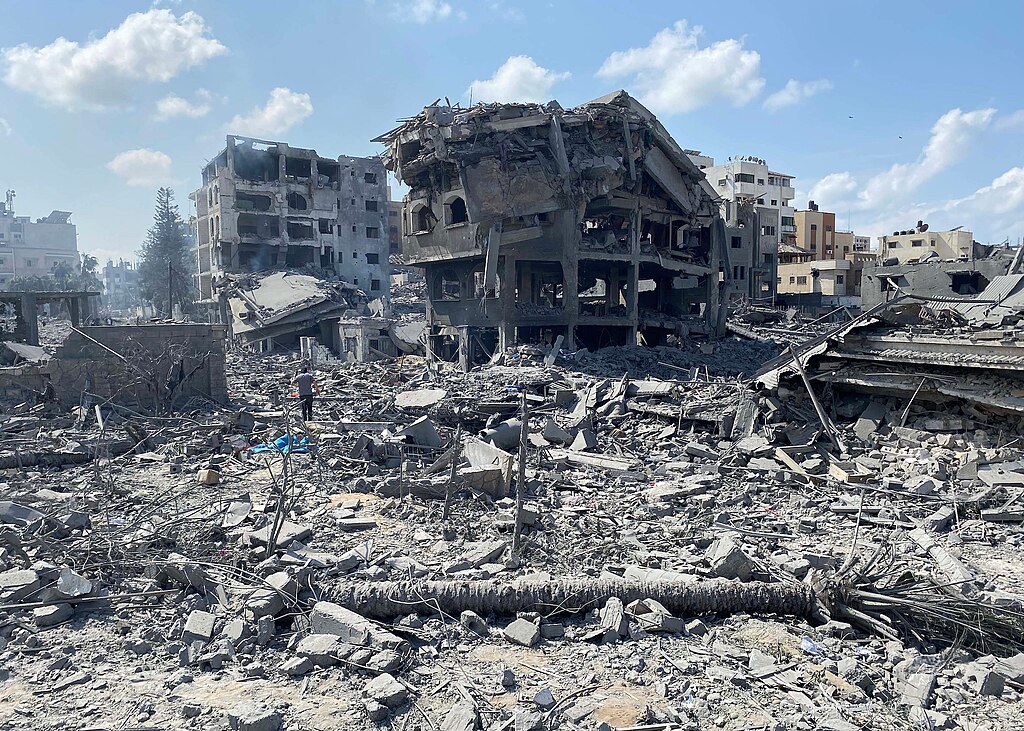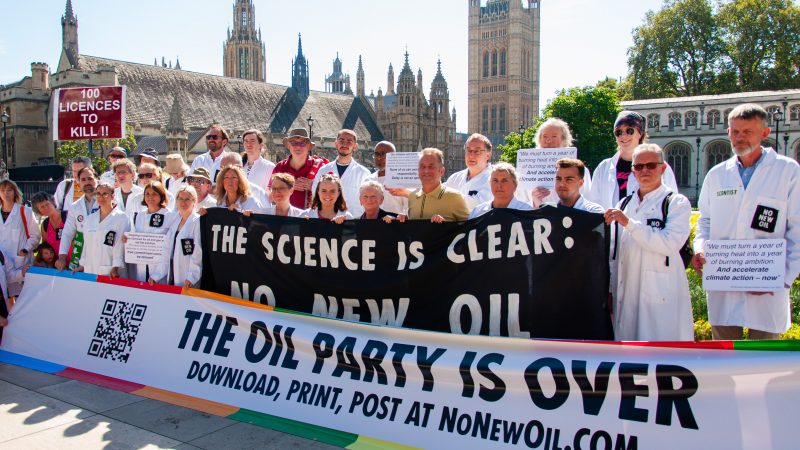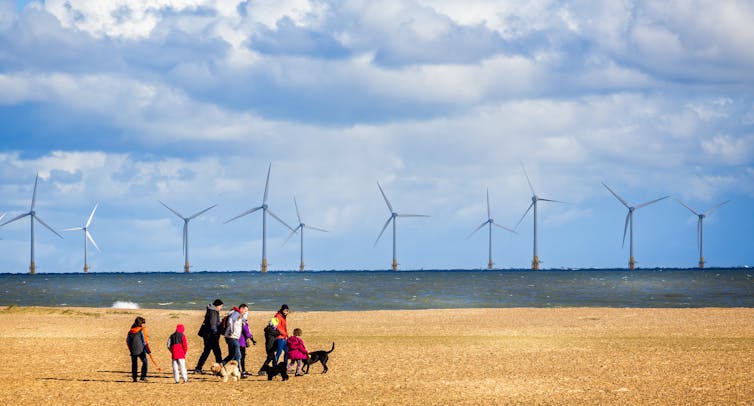UN Rights Chief Says Israel’s Collective Punishment in Gaza Is a War Crime

Original article by JESSICA CORBETT republished from Common Dreams under Creative Commons (CC BY-NC-ND 3.0).
“We have fallen off a precipice. This cannot continue.”
United Nations High Commissioner for Human Rights Volker Türk declared Wednesday that “the collective punishment by Israel of Palestinian civilians amounts… to a war crime, as does the unlawful forcible evacuation of civilians.”
Israel’s monthlong war on Gaza has killed over 10,500 Palestinians, wounded thousands more, displaced 70% of the strip’s 2.3 million residents, and decimated civilian infrastructure, including homes, religious buildings, and hospitals.
Türk’s comments came after he visited the Rafah border crossing that connects Egypt to Gaza, which he described as “the gates to a living nightmare—a nightmare where people have been suffocating, under persistent bombardment, mourning their families, struggling for water, for food, for electricity and fuel.”
Long before October 7, when a Hamas-led attack killed over 1,400 Israelis and triggered Israel’s retaliation, Gaza was “described as the world’s biggest open-air prison… under a 56-year occupation and a 16-year blockade by Israel,” he highlighted.
“Even in the context of a 56-year-old occupation, the current situation is the most dangerous in decades, faced by people in Gaza, in Israel, in the West Bank, but also regionally.”
The U.N. rights chief also stressed that “the atrocities perpetrated by Palestinian armed groups… were heinous, brutal, and shocking. They were war crimes—as is the continued holding of hostages.” Israeli officials say there are about 240 hostages.
“We have fallen off a precipice. This cannot continue,” he warned. “Even in the context of a 56-year-old occupation, the current situation is the most dangerous in decades, faced by people in Gaza, in Israel, in the West Bank, but also regionally.”
Türk emphasized that “parties to the conflict have the obligation to take constant care to spare the civilian population and civilian objects,” and as an occupying power, Israel is required “to ensure a maximum of basic necessities of life can reach all who need it.”
“I call—as a matter of urgency—for the parties now to agree [to] a cease-fire on the basis of three critical human rights imperatives: We need urgent delivery of massive levels of humanitarian aid, throughout Gaza,” he declared.
The official also called for all hostages to be freed without condition and said that “crucially, we need to enable the political space to implement a durable end to the occupation, based on the rights of both Palestinians and Israelis to self-determination and their legitimate security interests.”
U.N. Secretary-General António Guterres—who has also been pushing for a cease-fire—called out Israel’s aerial and ground operations for their impact on civilians during a Reuters conference on Wednesday.
“There are violations by Hamas when they have human shields. But when one looks at the number of civilians that were killed with the military operations, there is something that is clearly wrong,” he said.
“We have in a few days in Gaza thousands and thousands of children killed, which means there is also something clearly wrong in the way military operations are being done,” the U.N. leader added.
According to the Palestinian Ministry of Health in Gaza, the Israeli war against Hamas has killed over 4,300 children.
“It is also important to make Israel understand that it is against the interests of Israel to see every day the terrible image of the dramatic humanitarian needs of the Palestinian people,” Guterres said. “That doesn’t help Israel in relation to the global public opinion.”
While French President Emmanuel Macron’s plans to hold a Gaza-focused “humanitarian conference” in Paris on Thursday, the government of Israeli Prime Minister Benjamin Netanyahu is refusing to participate in the event.
Ahead of the conference, 13 human rights and relief groups called on attendees “to do everything in their power to achieve an immediate cease-fire; take concrete steps to free civilian hostages and protect all civilian populations; and ensure the entry of humanitarian aid into Gaza and respect for international humanitarian law.”
Among them was Amnesty International—which, over the past month, has compiled “damning evidence of war crimes as Israeli attacks wipe out entire families.” Some global experts and critics have demanded action from the International Criminal Court on “escalating Israeli war crimes and genocide of the Palestinian people” in Gaza.
In a resignation letter to Türk last month, Craig Mokhiber, who was serving as the New York director for the Office of the High Commissioner for Human Rights, condemned Israel’s war as “a textbook case of genocide.”
“In the immediate term,” Mokhiber wrote, “we must work for an immediate cease-fire and an end to the long-standing siege on Gaza, stand up against the ethnic cleansing of Gaza, Jerusalem, and the West Bank (and elsewhere), document the genocidal assault in Gaza, help to bring massive humanitarian aid and reconstruction to the Palestinians, take care of our traumatized colleagues and their families, and fight like hell for a principled approach in the U.N.’s political offices.”
Original article by JESSICA CORBETT republished from Common Dreams under Creative Commons (CC BY-NC-ND 3.0).





